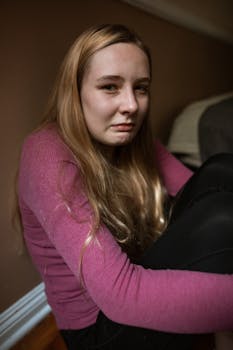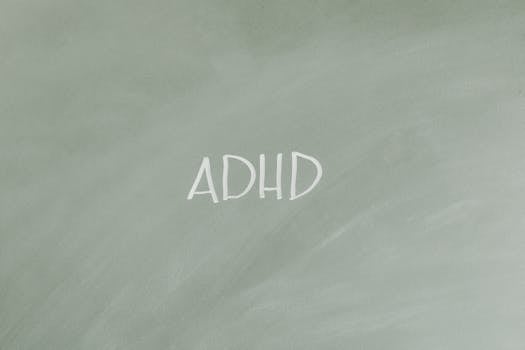
The Unseen Scars: Understanding and Coping with Post-Traumatic Stress Disorder (PTSD)
Post-traumatic stress disorder (PTSD) is a debilitating mental health condition that can profoundly impact a person's life. Unlike the readily visible wounds of physical trauma, the scars of PTSD are often unseen, residing in the mind and manifesting in complex and sometimes unpredictable ways. This condition, triggered by exposure to a terrifying event, leaves enduring emotional and psychological wounds that require understanding, compassion, and effective treatment.
The Shadow of Trauma: What is PTSD?
PTSD develops in individuals who have experienced or witnessed a profoundly distressing event, such as a serious accident, natural disaster, physical or sexual assault, combat, terrorism, or other life-threatening situations. The defining characteristic of PTSD is the persistent re-experiencing of the trauma, often through intrusive memories, flashbacks, nightmares, or even sensory triggers that evoke a visceral reaction. These intrusive memories are not simply unpleasant recollections; they can be overwhelmingly vivid and realistic, causing significant distress and fear.
Beyond the re-experiencing of trauma, individuals with PTSD often exhibit avoidance behaviors. They may actively avoid places, people, activities, or thoughts that remind them of the traumatic event. This avoidance can lead to social isolation, difficulty maintaining relationships, and limitations in daily functioning.
The core symptoms of PTSD include:
- Intrusive memories: Recurring, unwanted distressing memories of the traumatic event.
- Flashbacks: Experiencing the traumatic event as if it is happening again.
- Nightmares: Frequent nightmares related to the trauma.
- Avoidance: Avoiding places, people, activities, or thoughts associated with the trauma.
- Negative alterations in cognition and mood: Persistent negative beliefs about oneself, others, or the world; distorted sense of blame; emotional detachment; diminished interest in activities; feelings of hopelessness.
- Hyperarousal: Increased vigilance, exaggerated startle response, difficulty sleeping, irritability, and angry outbursts.
- Psychotherapy: This is a cornerstone of PTSD treatment. Cognitive Processing Therapy (CPT) and Prolonged Exposure (PE) are two highly effective evidence-based therapies that help individuals process traumatic memories and reduce avoidance behaviors. Other therapies, such as trauma-focused cognitive behavioral therapy (TF-CBT) and Eye Movement Desensitization and Reprocessing (EMDR), can also be beneficial.
- Medication: While medication does not cure PTSD, certain medications, such as antidepressants and anti-anxiety medications, can help manage symptoms like anxiety, depression, and sleep disturbances. Medications are often used in conjunction with psychotherapy for optimal results.
- Support Groups: Connecting with others who understand the challenges of living with PTSD can provide valuable support and reduce feelings of isolation. Support groups offer a safe space to share experiences, learn coping strategies, and build a sense of community.
The Ripple Effect: How PTSD Impacts Lives
The consequences of PTSD extend far beyond the individual struggling with the condition. Families, friends, and coworkers can be profoundly affected by the changes in behavior, mood, and emotional regulation. Relationships can strain under the weight of the individual's emotional distress and avoidance behaviors. Furthermore, PTSD can significantly impact employment, education, and social functioning, leading to decreased productivity, loss of income, and social isolation.
The long-term effects of untreated PTSD can be devastating. Individuals may suffer from chronic anxiety, depression, substance abuse, and even suicidal thoughts. The condition can significantly reduce quality of life, impacting overall well-being and happiness.
Seeking Help and Finding Hope: Treatment Options for PTSD
Thankfully, effective treatments are available to help individuals overcome PTSD. Early intervention is crucial, and seeking professional help is a vital first step. Treatment options often involve a combination of therapeutic approaches, including:
Breaking the Silence: Raising Awareness and Reducing Stigma
Raising awareness about PTSD is crucial to reducing the stigma associated with this condition. Openly discussing PTSD, promoting understanding, and encouraging individuals to seek help are essential steps towards creating a more supportive and compassionate environment. Educating others about the symptoms, causes, and treatment options can help to dispel misconceptions and encourage those struggling to reach out for assistance.
Moving Forward: Hope and Recovery
While the journey to recovery from PTSD can be challenging, it is possible. With the right support, treatment, and self-care strategies, individuals can learn to manage their symptoms, reclaim their lives, and build a future free from the overwhelming grip of trauma. Remember, seeking help is a sign of strength, not weakness. If you or someone you know is struggling with PTSD, reach out to a mental health professional for guidance and support. There is hope, and recovery is within reach.
Keywords: PTSD, Post-Traumatic Stress Disorder, Trauma, Mental Health, Treatment, Therapy, Psychotherapy, Medication, Support Groups, Recovery, Coping Mechanisms, Anxiety, Depression, Flashbacks, Nightmares, Avoidance, Intrusive Memories, Cognitive Processing Therapy, Prolonged Exposure, EMDR, Trauma-Focused CBT.

